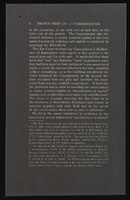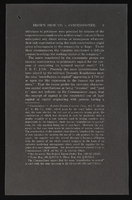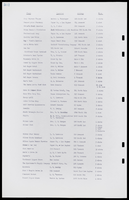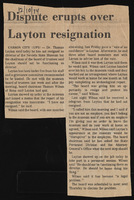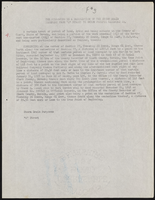Search the Special Collections and Archives Portal
Search Results

Slide of Hoover Dam taken on the downstream side, circa 1970s
Date
Archival Collection
Description
Image
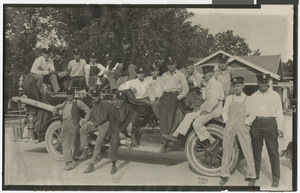
Photograph of the Las Vegas Volunteer Fire Department, Las Vegas, early to mid 1900s
Date
Archival Collection
Description
A group photo of the Las Vegas Volunteer Fire Department in Las Vegas, Nevada. Description provided with image: "Top row, l-r: Jimmy (Jimmie?) Downs, Ray Nealy, Roy Neagle (Nagley?), Shorty Debrink, Harry Jameson, Leon Rockwell, Harold Case, Earl Rockwell (self), Percy Shellenberger, Archie Mellot, Jimmy Adams, Henry Kampling, Gene Parks, Tom Lake, Bill Trelease, Horace Taylor."
Image
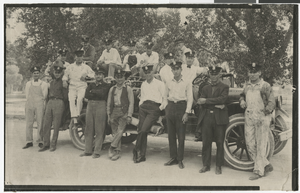
Photograph of the Las Vegas Volunteer Fire Department, Las Vegas, early to mid 1900s
Date
Archival Collection
Description
A group photo of the Las Vegas Volunteer Fire Department in Las Vegas, Nevada. Description provided with image: "Back row, sitting on truck: Ray Nealy, Jimmie Downs, Shorty DeBrink, Harry Jameson, Henry Kampling. Stand of back step: Roy Neagle (Nagley?). Standing: Bill Trelease, RER (Earl Rockwell), Gene Parks, Leon R. (Rockwell), Harold Case, Horace Taylor, Jimmy Adams, Percy Scholenberger (Shellenberger?), Tom Lake. Driver seat: Archie Mellot, Al Conger."
Image

